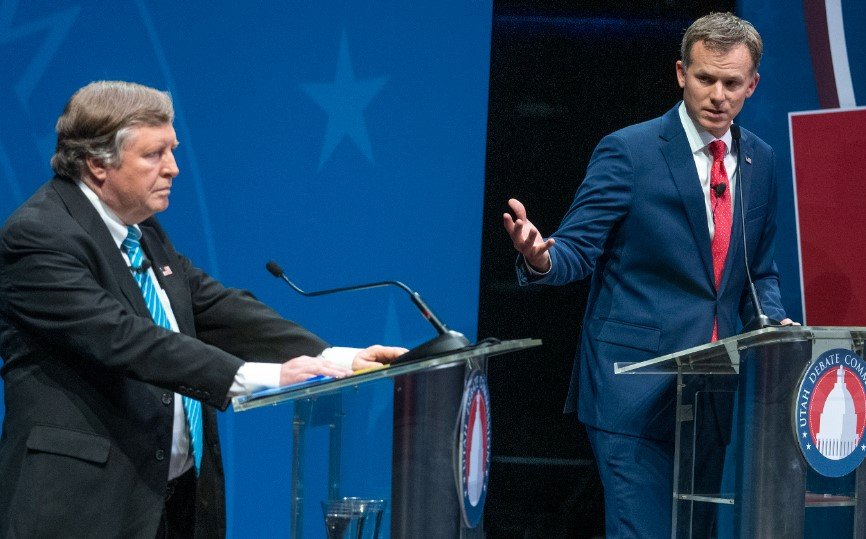In the heart of conservative Utah, a few blue districts stand as bastions of progressive thought, their Democratic representatives navigating the tumultuous waters of a predominantly red legislature. These districts, notably House Districts 23 and 24, are the focal points of a broader discussion on culture wars and the passage of bills in an environment that leans heavily towards conservative ideologies.
The Battle for District 23
With no incumbent in the race, District 23’s seat is one of the most closely watched contests within the Democratic Party. Candidates Hoang Nguyen and Jeff Howell are vying for the opportunity to succeed Representative Brian King, who has served since 2009. Their recent debate was a showcase of political acumen, with discussions ranging from personal endorsements to strategies for effective legislation within a Republican-dominated Capitol.

Nguyen, with her experience shadowing Senate Minority Leader Luz Escamilla and working with majority leaders, brings a nuanced understanding of the legislative process. Her advocacy for diversity, equity, and inclusion programs, especially when such initiatives face opposition, demonstrates her commitment to these values.
Howell, endorsed by the outgoing King, touts his connections with Republican legislators like Representative Tyler Clancy, which could be pivotal in securing bipartisan support for critical issues such as homelessness resources.
The Dynamics in District 24
In District 24, incumbent Joel Briscoe faces challengers Grant Miller and Ramón Barthelemy. Briscoe’s long tenure of approximately 14 years has given him deep insights into the legislative process, while Miller’s background as a public defender and Barthelemy’s academic perspective offer fresh takes on the state’s pressing issues.
This district’s race is unique as there is no Republican challenger, meaning the winner of the Democratic primary will likely secure the seat. The candidates’ platforms reflect a shared Democratic vision, yet their approaches to influencing a conservative legislature vary, highlighting the diversity within the party itself.
The Wider Implications
The debates and discussions within these blue districts are microcosms of the larger cultural and political battles taking place across Utah. The outcomes of these races will not only determine the representatives of these districts but also shape the Democratic Party’s strategies in a state where conservative bills on education, the environment, and culture war issues are the norm.
As the primary elections approach, the eyes of Utah’s progressives are fixed on these districts, hopeful that their representatives can make a meaningful difference in the state’s legislative landscape.

Comments